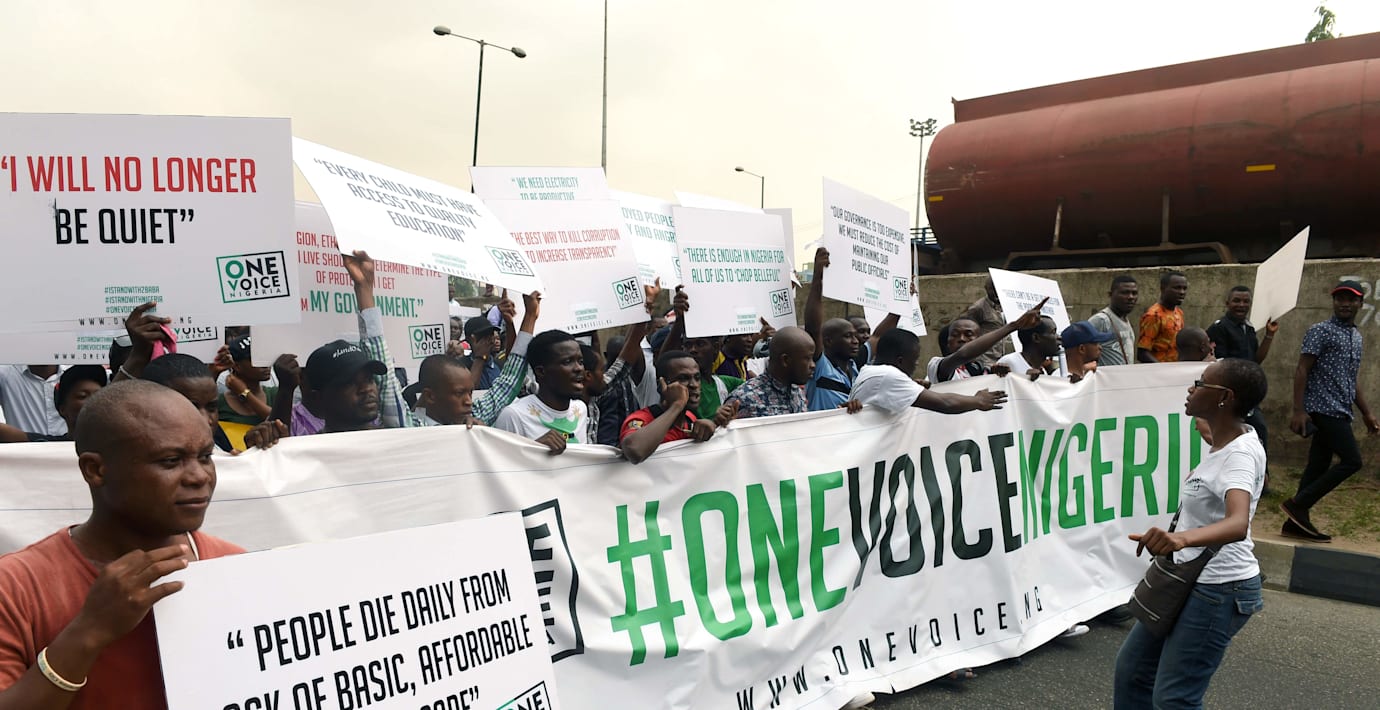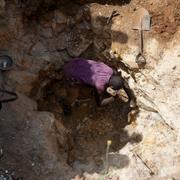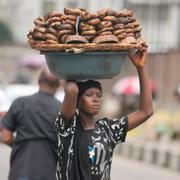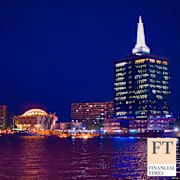
Demonstrationer mot Nigerias regering: ”Vi lider”
Omkring 500 demonstranter gick på måndagen ut på gatorna i Nigerias största stad Lagos för att protestera mot hur regeringen hanterat landets ekonomiska kris, skriver AFP och Reuters.
– Allt är väldigt dyrt i dag: Både matpriserna och bensinpriserna har stigit. Vi lider men politikerna bryr sig inte, säger studenten Elias Ozikpu till AFP.
Oljeprisraset, som inleddes 2014, har slagit hårt mot Nigerias ekonomi. Under de senaste åren har inflationen stigit till över 20 procent, medan landets valuta, naira, har försvagats.
bakgrund
Nigerias ekonomi räknas som den största i Afrika
Wikipedia (en)
Nigeria is a middle income, mixed economy and emerging market, with expanding manufacturing, financial, service, communications, technology and entertainment sectors. It is ranked as the 21st largest economy in the world in terms of nominal GDP, and the 20th largest in terms of Purchasing Power Parity. It is the largest economy in Africa; its re-emergent manufacturing sector became the largest on the continent in 2013, and produces a large proportion of goods and services for the West African subcontinent. Also, the debt-to-GDP ratio is only 11 percent, which is 8 percent below the 2012 ratio.
Previously hindered by years of mismanagement, economic reforms of the past decade have put Nigeria back on track towards achieving its full economic potential. Nigerian GDP at purchasing power parity (PPP) has almost tripled from $170 billion in 2000 to $451 billion in 2012, although estimates of the size of the informal sector (which is not included in official figures) put the actual numbers closer to $630 billion. Correspondingly, the GDP per capita doubled from $1400 per person in 2000 to an estimated $2,800 per person in 2012 (again, with the inclusion of the informal sector, it is estimated that GDP per capita hovers around $3,900 per person). (Population increased from 120 million in 2000 to 160 million in 2010). These figures are to be revised upwards by as much as 80% when metrics are recalculated subsequent to the rebasing of its economy in April 2014.
Although much has been made of its status as a major exporter of oil, oil only contributes about 9% to the GDP. Nigeria produces only about 2.7% of the world's oil supply (In comparison, Saudi Arabia produces 12.9%, Russia produces 12.7% and the United States produces 8.6%). Although the petroleum sector is important, as Government revenues still heavily rely on this sector, it remains in fact a small part of the country's overall vibrant and diversified economy.
The largely subsistence agricultural sector has not kept up with rapid population growth, and Nigeria, once a large net exporter of food, now imports a some of its food products, though mechanization has led to a resurgence in manufacturing and exporting of food products, and the move towards food sufficiency. In 2006, Nigeria successfully convinced the Paris Club to let it buy back the bulk of its debts owed to the Paris Club for a cash payment of roughly $12 billion (USD).
According to a Citigroup report published in February 2011, Nigeria will get the highest average GDP growth in the world between 2010 and 2050. Nigeria is one of two countries from Africa among 11 Global Growth Generators countries.
Omni är politiskt obundna och oberoende. Vi strävar efter att ge fler perspektiv på nyheterna. Har du frågor eller synpunkter kring vår rapportering? Kontakta redaktionen



